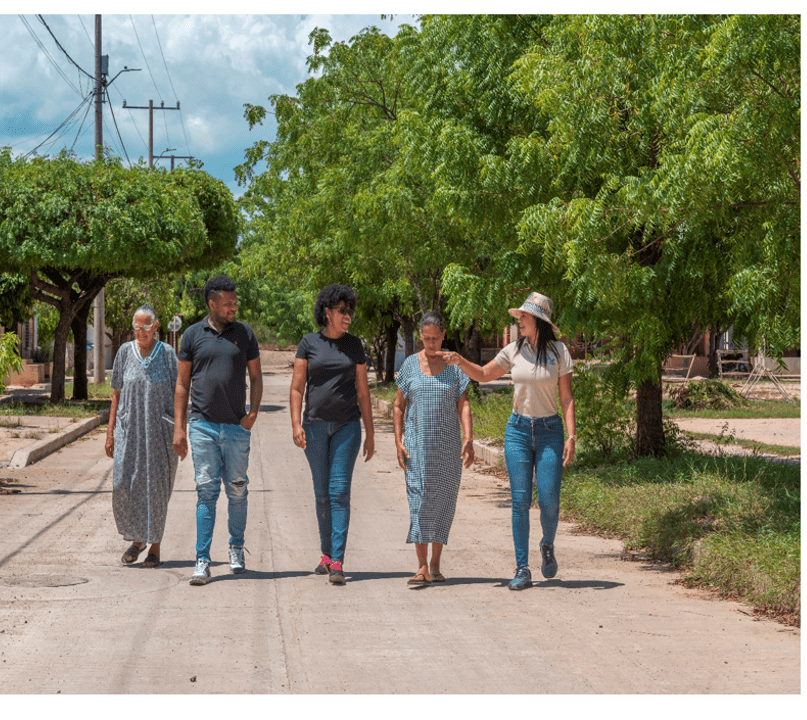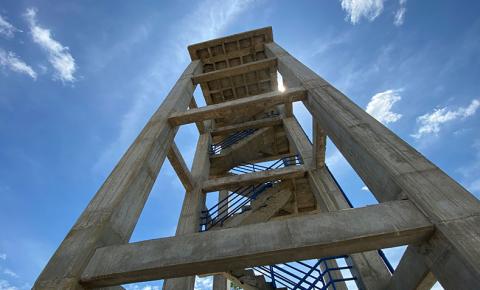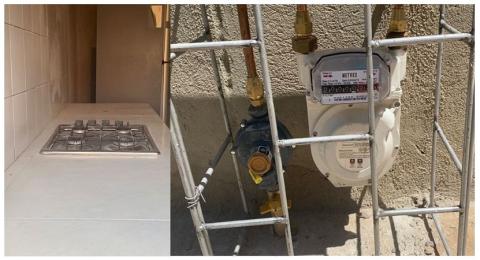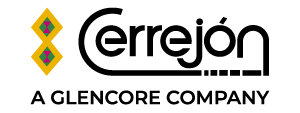
Building resilient communities: advancing access to public services in resettled communities
April 3, 2025. The development of a mine requires the acquisition of land, either to carry out mining activities or for environmental offset measures. In some cases, and always as a last resort, it is necessary to resettle communities to mitigate impacts generated by mining activity.
Cerrejón participated in the resettlement of five communities (Roche, Patilla, Chancleta, Tamaquito II, and Las Casitas) from 2003 to 2017, following the International Finance Corporation (IFC) performance standards. By 2017, 100% of the 170 families accredited for resettlement had been successfully relocated and today continue to receive ongoing support.
Before being resettled, these communities faced challenging living conditions that included mud houses with zinc roofs and dirt floors, and lacking basic services. For example, 86% of homes had no sanitary facilities and electricity, where available, was often illegally connected. There was no access to internet or waste collection services. These deficiencies severely limited the quality of life and health of the residents, with only 35% of households affiliated with a healthcare system. Access to education was also very limited with just 61 individuals under 20 years of age enrolled in school before the resettlement.
Since the relocation, Cerrejón has been working to improve the conditions of these families through efforts to restore their livelihoods and contribute to their resilience. In addition to the education and income generation programs, Cerrejón and the resettled communities have been working towards improving access to sustainable utility services, such as:
- Homes have been designed through participatory processes with materials that enable access all utility services.
- All 5 resettlements now have access to public electricity system.
- Roche, Patilla, Chancleta and Las Casitas are now connected to the local sewage systems. For the more remote community of Tamaquito II, a wastewater treatment plant remains operational, managed by the community with Cerrejón's support.
- All families have connection to internet service in their homes.
- Through on-going works, enhanced sustainability of public services by moving from the current community operated water treatment processes to connect Roche, Patilla, Las Casitas and Chancleta to the public aqueduct system.
- Connect all five resettlements to public natural gas systems, including Tamaquito II, which in 2023 became the first indigenous reservation in La Guajira to be connected to this service.
- Ensure access to public waste collection services.
- In 2019, support the Indigenous community of Tamaquito II to obtain the category of Indigenous Reservation to enable access to direct National Government funds.
- Enable participation of community organizations in Cerrejon purchasing and contracting to support income generation via execution of their own projects (housing, infrastructure, among others).
- In 2023, via an agreement between Cerrejon and the Barrancas Mayor´s Office, paved the roads of resettled communities. By December 2024, 100% of the Patilla and Las Casitas´ roads have been paved and delivered. Cerrejón contributed USD$1.2M of the USD$ 3.7M project.



The development of a mine requires the acquisition of land, either to carry out mining activities or for environmental offset measures. In some cases, and always as a last resort, it is necessary to resettle communities to mitigate impacts generated by mining activity.
Building resilient communities: advancing access to public services in resettled communities
